Introduction Korean Grammar ‘-자고/냐고 하다’
Learning Korean grammar can be challenging, but breaking it down into manageable lessons can make it easier. Today, we will explore the grammar patterns ‘-자고 하다’ and ‘-냐고 하다,’ which are used to report suggestions and questions in Korean. This lesson will help you understand and use these forms effectively.
Learn Korean with JAEM : Improve your Korean with our app through free lessons and courses. And also, Join our 4-week challenge program to progress from upper-beginner to master level with Native Korean Coaches. Strat to study Korean more!
Our Book: Don’t miss out on our comprehensive book that covers essential Korean language skills and strategies. See our books and study with us! 🙂
AI Writing Practice Program: Enhance your writing skills with JAEM TOPIK, our AI-powered practice program. Get personalized feedback and TOPIK tips to elevate your Korean writing. Study TOPIK writing yourself and get high TOPIK score!
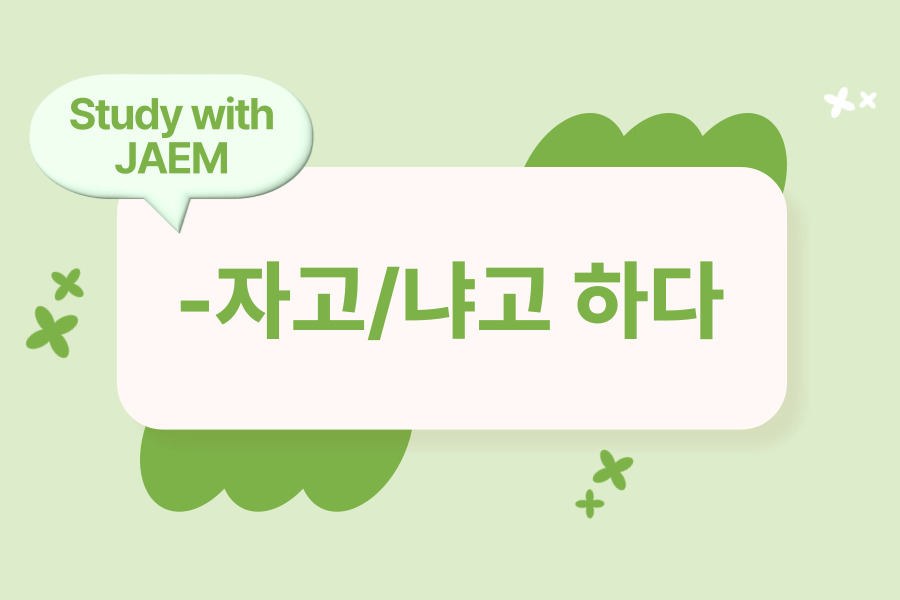
Table of Contents
Grammar Explanation ‘-자고/냐고 하다’
The grammar patterns ‘-자고 하다’ and ‘-냐고 하다’ are used to report suggestions and questions, respectively.
Formation:
- Suggestion: Verb stem + ‘-자고 하다’ (used to report suggestions or proposals)
- Question: Verb/Adjective stem + ‘-냐고 하다’ (used to report questions or inquiries)
| Speech Form | Form | Example Sentence |
|---|---|---|
| Suggestion | 가자고 하다 | 그는 같이 가자고 했어요 (He suggested that we go together) |
| Question | 가냐고 하다 | 그는 어디 가냐고 물었어요 (He asked where I am going) |
Examples ‘-자고/냐고 하다’
Reporting Suggestions with ‘-자고 하다’:
- 가다 (to go)
- 가자고 하다 = Suggests going
- 그는 같이 가자고 했어요 = He suggested that we go together.
- 먹다 (to eat)
- 먹자고 하다 = Suggests eating
- 그녀는 저녁을 먹자고 했어요 = She suggested that we eat dinner.
- 공부하다 (to study)
- 공부하자고 하다 = Suggests studying
- 친구가 도서관에서 공부하자고 했어요 = My friend suggested that we study at the library.
- 만나다 (to meet)
- 만나자고 하다 = Suggests meeting
- 그는 내일 만나자고 했어요 = He suggested that we meet tomorrow.
Reporting Questions with ‘-냐고 하다’:
- 가다 (to go)
- 가냐고 하다 = Asks if (someone) is going
- 그는 어디 가냐고 물었어요 = He asked where I am going.
- 먹다 (to eat)
- 먹냐고 하다 = Asks if (someone) eats
- 그녀는 밥을 먹냐고 물었어요 = She asked if I am eating a meal.
- 좋다 (good)
- 좋냐고 하다 = Asks if (something) is good
- 그는 이 책이 좋냐고 물었어요 = He asked if this book is good.
- 있다 (to be, exist)
- 있냐고 하다 = Asks if (something) exists
- 그는 시간이 있냐고 물었어요 = He asked if I have time.
Usage in Context
When using ‘-자고 하다’ and ‘-냐고 하다’ in different contexts, they emphasize reporting suggestions and questions, respectively.
Reporting Suggestions:
- 친구가 영화를 보자고 했어요 = My friend suggested that we watch a movie.
- 그녀가 산책을 하자고 했어요 = She suggested that we take a walk.
- 우리가 함께 공부하자고 했어요 = We suggested that we study together.
- 그는 여행을 가자고 했어요 = He suggested that we go on a trip.
Reporting Questions:
- 그녀가 무슨 일이 있냐고 물었어요 = She asked if something happened.
- 그들이 언제 출발하냐고 했어요 = They asked when we are leaving.
- 그는 왜 늦었냐고 했어요 = He asked why I was late.
- 선생님이 숙제를 했냐고 물었어요 = The teacher asked if I did my homework.
Cultural Insight: In Korean culture, accurately reporting suggestions and questions using ‘-자고 하다’ and ‘-냐고 하다’ shows attentiveness and respect in conversations. It helps convey the exact intentions and inquiries of others.
Common Mistakes of ‘-자고/냐고 하다’
Common Mistakes:
- Incorrect: 가자고 하다 (correct for suggestion, but used incorrectly for question)
- Correct: 가냐고 하다 = Asks if (someone) is going
Mistake Explanation: Ensure that ‘-자고 하다’ is used for suggestions and ‘-냐고 하다’ is used for questions to convey the correct meaning.
Related Grammar Points ‘-자고/냐고 하다’
Explore these related grammar points to deepen your understanding:
- -라고 하다: To report direct speech or names.
- -다고 하다: To report statements or thoughts.
- -고 싶다고 하다: To report someone’s wishes or desires.
- -고 있다: To express ongoing actions.
Practice Exercises ‘-자고/냐고 하다’
Practice Makes Perfect!
- Exercise 1: Conjugate the following verbs/adjectives using ‘-자고 하다’ and ‘-냐고 하다.’
- 가다 (to go)
- 먹다 (to eat)
- 좋다 (good)
- 공부하다 (to study)
Answer Key:
- 가자고 하다 / 가냐고 하다
- 먹자고 하다 / 먹냐고 하다
- 좋냐고 하다 (adjective, so only question form)
- 공부하자고 하다 / 공부하냐고 하다
- Exercise 2: Create sentences using ‘-자고 하다’ and ‘-냐고 하다’ for the following situations:
- She suggested that we go to the park.
- He asked if I am reading a book.
- They suggested that we have lunch together.
- She asked if I like the movie.
Answer Key:
- 그녀가 공원에 가자고 했어요.
- 그가 내가 책을 읽냐고 물었어요.
- 그들이 같이 점심을 먹자고 했어요.
- 그녀가 내가 그 영화를 좋아하냐고 물었어요.
Download the workbook for more exercises and practice.
Summary and Conclusion
Today, we covered the grammar points ‘-자고 하다’ and ‘-냐고 하다’ and how to use them to report suggestions and questions in Korean. These patterns are essential for accurately conveying the intentions and inquiries of others in conversations. Continue practicing with our workbook and check out related lessons for more in-depth learning.
If you have any questions or suggestions, feel free to comment below. Happy learning!
Learn Real Korean with JAEM!
Learn Korean with JAEM Korean App & 4-week Challenge: Discover the best way to learn real Korean with our comprehensive app. Enjoy a wide variety of free lessons and courses designed to help you master the language. Also, our unique 4-week challenge program guides you from an upper-beginner level to a master course, all under the guidance of Native Korean Coaches. Whether you’re just starting out or looking to refine your skills, this program offers an effective path to fluency.
AI Korean Writing Practice Program: Take your Korean writing to the next level with JAEM TOPIK, our innovative AI writing practice program. This service provides personalized feedback and practical tips tailored to your learning needs. With a focus on improving your Korean writing, JAEM TOPIK also offers specific strategies for excelling in the TOPIK exam. Benefit from expert insights and targeted advice to enhance your proficiency and confidence in writing.
Our Book: Additionally, explore our comprehensive book that covers essential Korean language skills and strategies. This valuable resource complements our app and AI program, providing a holistic approach to mastering Korean.
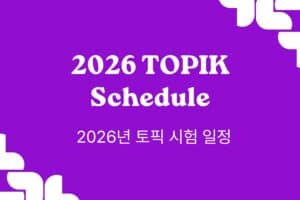
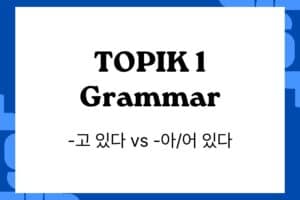
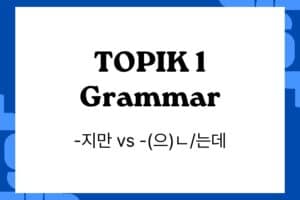
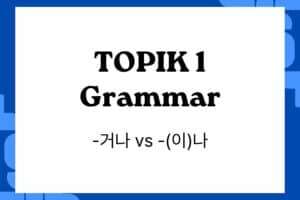
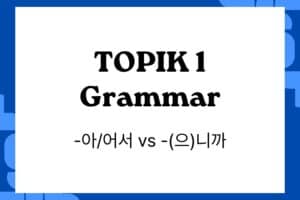
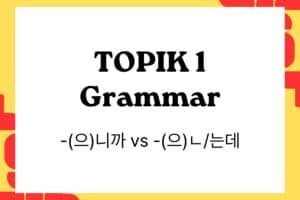
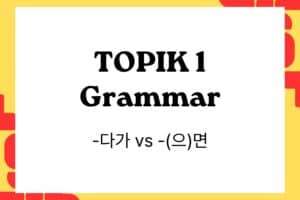
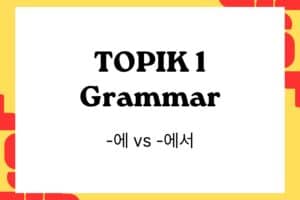
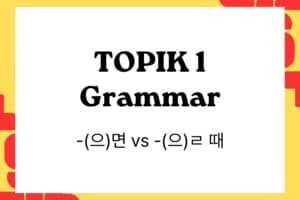
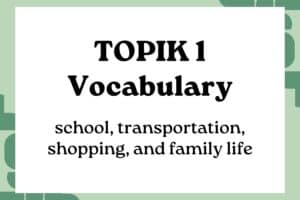
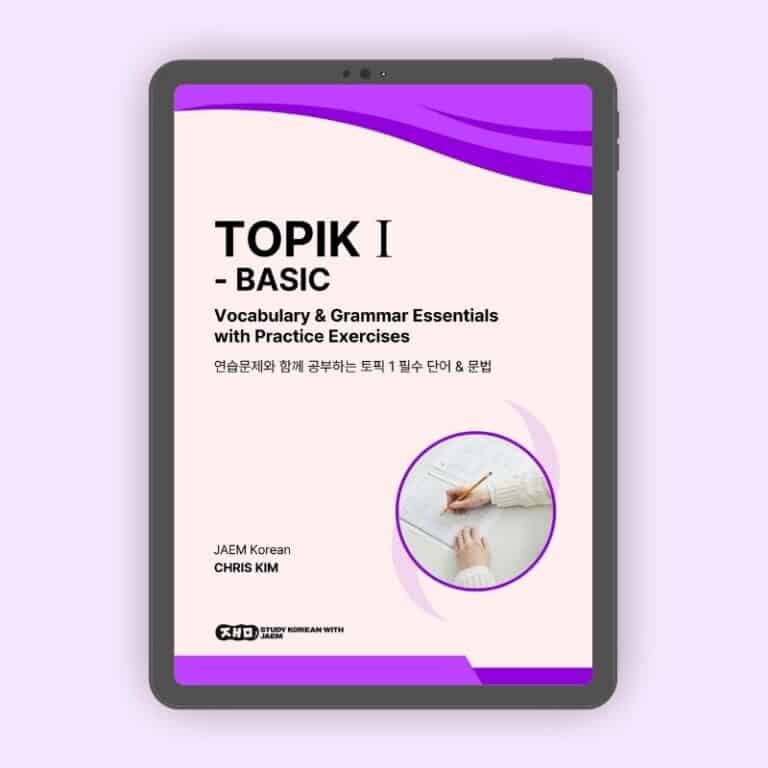
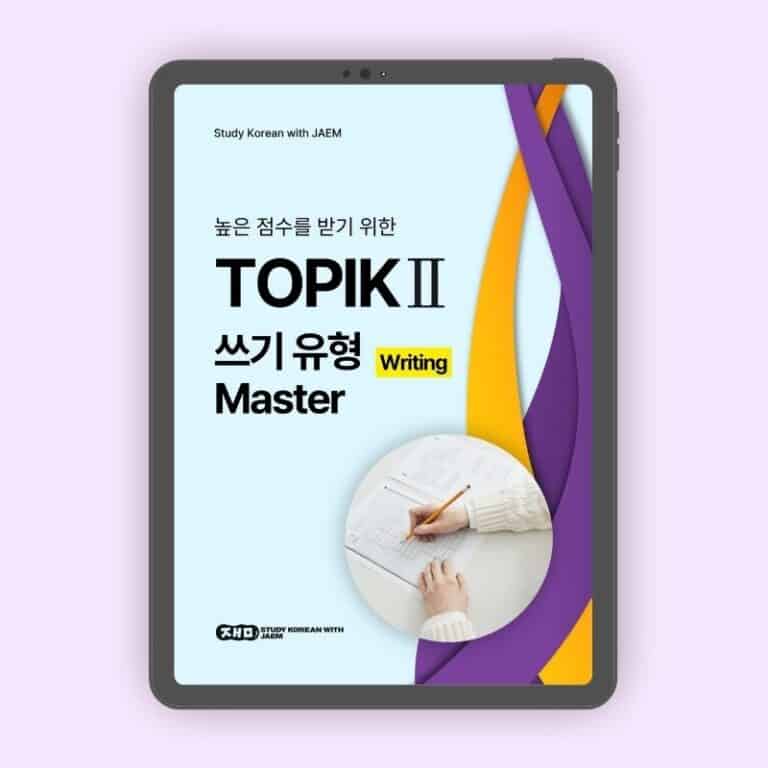
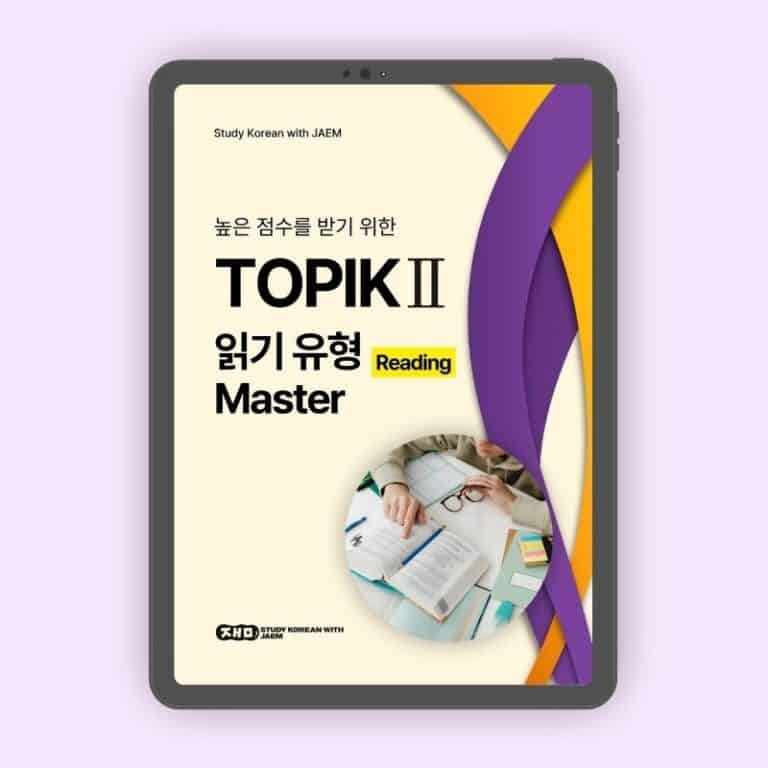

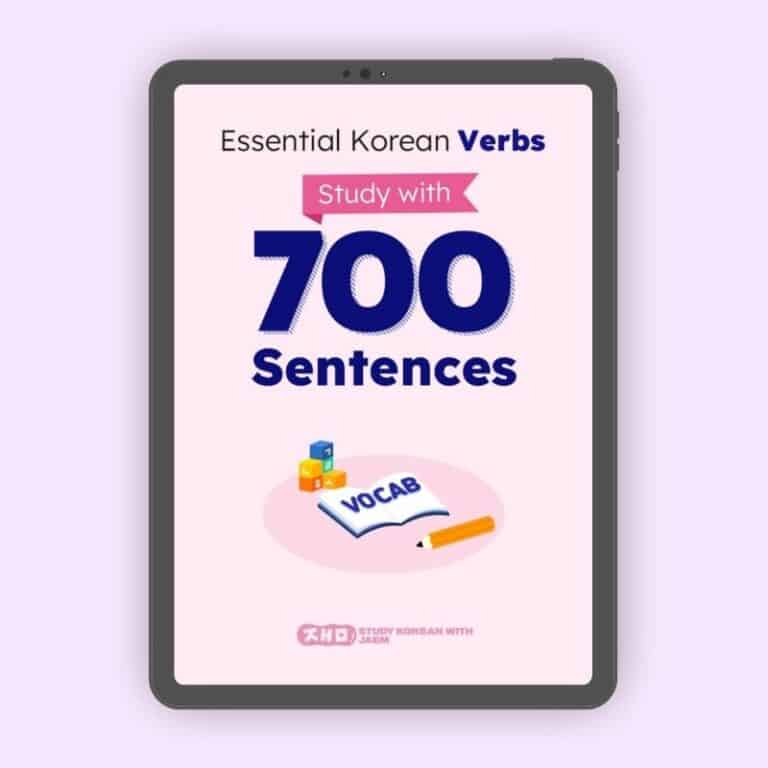
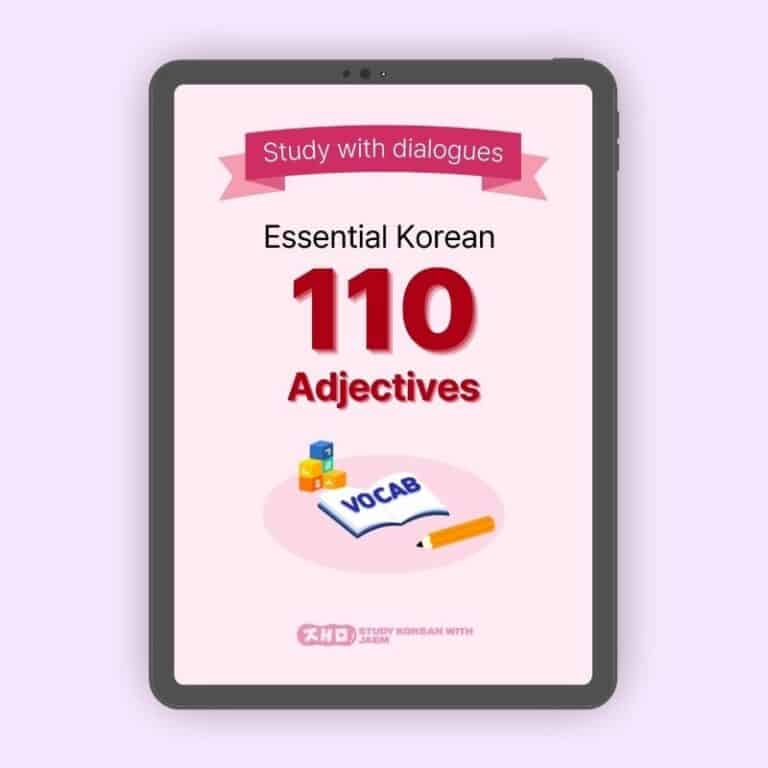
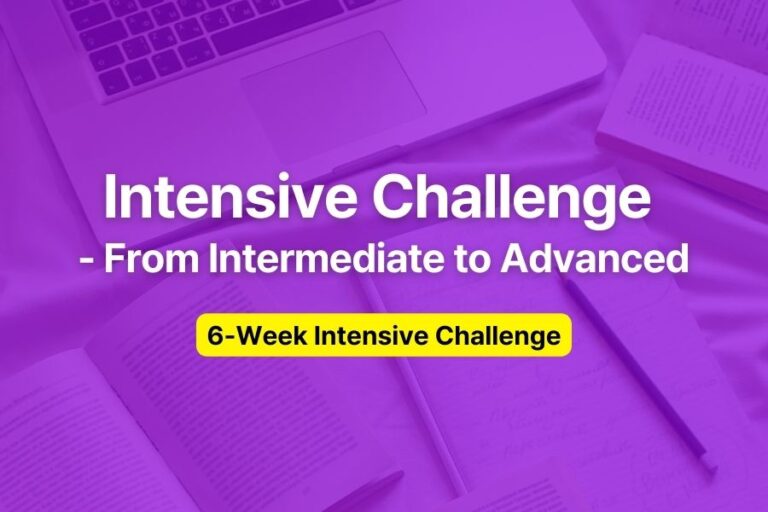
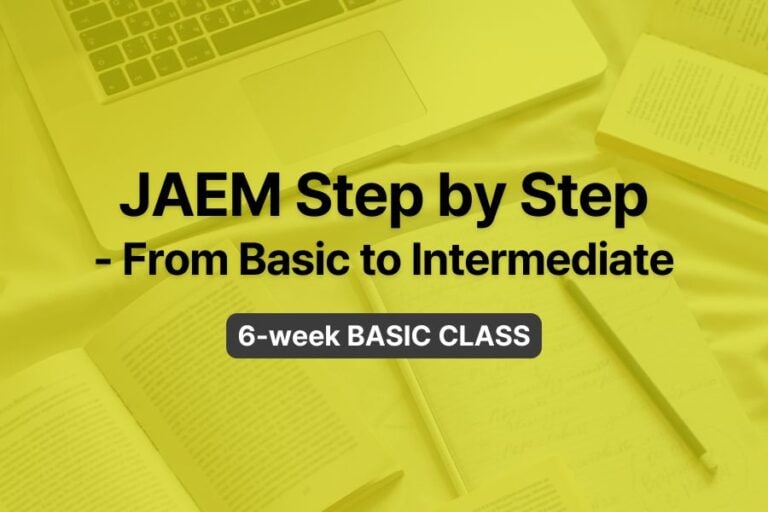
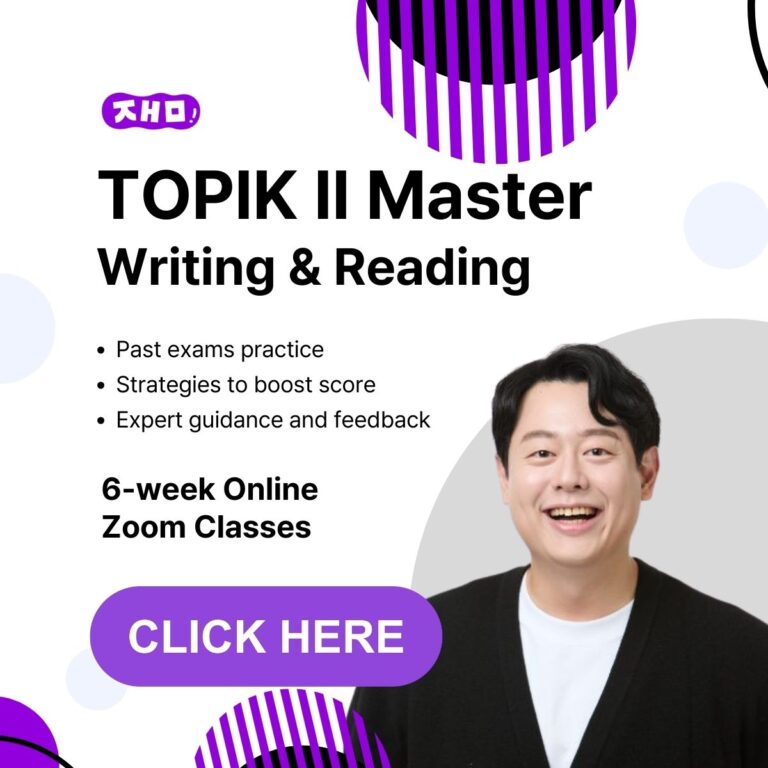
Responses